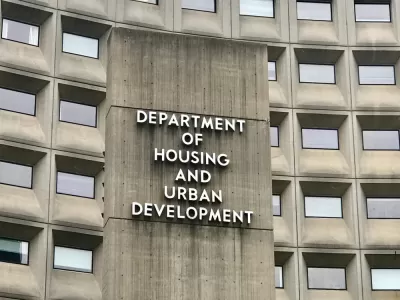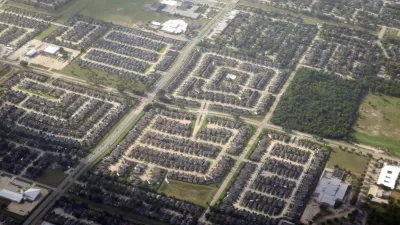The agency’s proposal would streamline and modernize its largest affordable housing grant program, which will award $1.3 billion in FY 2024.

New rules from the U.S. Department of Housing and Urban Development (HUD) modernize the HOME Investment Partnership Program (HOME). According to a HUD press release, “The proposed rule would streamline program requirements for states and localities, better align HOME funding with other federal housing resources, reduce administrative burden for communities and housing developers, improve assistance and protections for renters, strengthen the use of HOME for homeownership activities, and encourage green and climate resilient building practices.”
The program, the largest federal block grant for affordable housing, funds down payment assistance and closing costs, new housing construction, rehabilitation of existing housing, and some tenant-based rental assistance. “These updates would improve the ability of participating jurisdictions who receive HOME to implement funding more effectively and efficiently – making it easier for States and localities to use HOME to support low-income renters, homeowners, and homebuyers.”
The rule proposes simplifying requirements for homeownership and establishing a Blueprint for a Renters Bill of Rights. “The update would also expand opportunities for nonprofit organizations and developers who use HOME funding to create and retain renter or homeowner activities in their neighborhoods, such as revised requirements for community housing development organizations and community land trusts.” The rule also addresses incentives for green building and energy efficiency.

Alabama: Trump Terminates Settlements for Black Communities Harmed By Raw Sewage
Trump deemed the landmark civil rights agreement “illegal DEI and environmental justice policy.”

Study: Maui’s Plan to Convert Vacation Rentals to Long-Term Housing Could Cause Nearly $1 Billion Economic Loss
The plan would reduce visitor accommodation by 25% resulting in 1,900 jobs lost.

Why Should We Subsidize Public Transportation?
Many public transit agencies face financial stress due to rising costs, declining fare revenue, and declining subsidies. Transit advocates must provide a strong business case for increasing public transit funding.

Wind Energy on the Rise Despite Federal Policy Reversal
The Trump administration is revoking federal support for renewable energy, but demand for new projects continues unabated.

Passengers Flock to Caltrain After Electrification
The new electric trains are running faster and more reliably, leading to strong ridership growth on the Bay Area rail system.

Texas Churches Rally Behind ‘Yes in God’s Back Yard’ Legislation
Religious leaders want the state to reduce zoning regulations to streamline leasing church-owned land to housing developers.
Urban Design for Planners 1: Software Tools
This six-course series explores essential urban design concepts using open source software and equips planners with the tools they need to participate fully in the urban design process.
Planning for Universal Design
Learn the tools for implementing Universal Design in planning regulations.
Caltrans
Smith Gee Studio
Institute for Housing and Urban Development Studies (IHS)
City of Grandview
Harvard GSD Executive Education
Toledo-Lucas County Plan Commissions
Salt Lake City
NYU Wagner Graduate School of Public Service





























